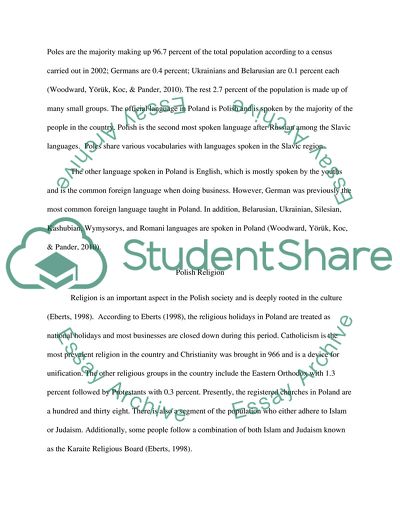Cite this document
(“The Culture of Poland Research Paper Example | Topics and Well Written Essays - 1500 words - 1”, n.d.)
Retrieved from https://studentshare.org/culture/1453502-the-culture-of-poland
Retrieved from https://studentshare.org/culture/1453502-the-culture-of-poland
(The Culture of Poland Research Paper Example | Topics and Well Written Essays - 1500 Words - 1)
https://studentshare.org/culture/1453502-the-culture-of-poland.
https://studentshare.org/culture/1453502-the-culture-of-poland.
“The Culture of Poland Research Paper Example | Topics and Well Written Essays - 1500 Words - 1”, n.d. https://studentshare.org/culture/1453502-the-culture-of-poland.


